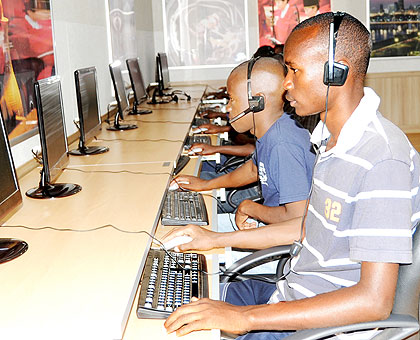The East African Community (EAC) partner states are exploring ways to harmonise and strengthen information and communication technology networks in the region.


The East African Community (EAC) partner states are exploring ways to harmonise and strengthen information and communication technology networks in the region.The bloc has already signed a draft Protocol on ICT Networks that incorporates all the tech policies, laws and regulations.According to the draft, the protocol seeks to promote ICT services in the Common Market Protocol, harmonise ICT policies and establish and manage technology networks across the bloc. It was approved by the 14th meeting of the Summit of EAC Heads of State in November, last year, and, consequently, the EAC ministers responsible for communications and ICT signed the protocol at the 10th Meeting of the Sectoral Council on Transport, Communications and Meteorology in Kigali last week.EAC’s ICT industry is growing, boosted by innovation among ICT entrepreneurs, but sustaining the momentum will depend on the identification and implementation of the right investment in the sector.Speaking to The New Times, last week, Jean Philbert Nsengimana, the minister for youth and ICT, said harmonising the sector strategies will enable Rwanda to interconnect with other partner countries."The EAC ICT Protocol will facilitate the growth of ICT markets in terms of infrastructure, telecommunication and ICT innovation and the benefits will reach all the EAC citizens,” Nsengimana said.The minister said the EAC Sectoral Council on Transport, Communications and Meteorology will oversee the implementation of the protocol.Apart from adopting the ICT harmonisation plan, Rwanda and East Africa, in general, are also experiencing rapid growth in the ICT sector. A World Bank report noted that operators and governments in sub-Saharan Africa are investing about $5 billion (about Rwf327 trillion) a year in the industry.Unlocking ICT potentialIn Rwanda, Kenya and Uganda, for instance, a number of indigenous and local companies are driving ICT through local content development. In Rwanda, homegrown start-ups such as Hehe Ltd, OSCA Connect and Zilencio Creativo, among others, are playing a key role in enabling Rwandans to enjoy efficient technology services. Nsengimana said: "Rwanda is looking ahead to be the regional ICT hub. We welcome the protocol because it will help to unlock Rwanda’s technology potential. Our country is land locked but with ICT interconnectivity it will not be locked anymore.”He, however, added that the move will come with challenges, for example, the infrastructure development, which does not move at the same pace in the region. "Not all EAC countries have fully established internal fibre optic cable networks,” the minister said.Rwanda has laid more than 3,000 kilometres of fibre optic cable that is rolled out across the country.The optic cable that was laid in 2010 seeks to boost access to various broadband services, including applications such as e-governance, e-banking, e-learning and e-health.The ICT protocol provides a platform to harmonise policies regarding e-waste, cyber laws, digital broadcasting, EAC broadband ICT infrastructure network and cross-border interconnections, among others.Cost of technology According to International Telecommunication report 2012, the cost of technology was cited as a factor for the slow growth in Africa.To address the challenge, Kenya and Rwanda established IBM and kLab Innovation centres, respectively, to help accelerate growth and innovation.The World Economic Forum’s Networked Readiness Index 2013 ranked Rwanda top in ICT usage in the EAC region, followed by Kenya, Uganda Tanzania, and then Burundi in that order.On broadband growth, Rwanda, Uganda and Kenya are first countries in East Africa set to roll-out a high-speed Fourth Generation (4G) broadband network that delivers download speed of up to 100 Megabytes per second. Internet usage in Uganda stands at 17 per cent, Rwanda at 8.3 per cent, Kenya (41.1 per cent), Tanzania 13 per cent and Burundi (2 per cent).What countries can doAccording to Sam Nkusi, the chairpersonn of Liquid Telecom, a subsidiary of South Africa-based Econet Wireless Group, harmonising ICT policies in the bloc is a great step but member countries should focus on providing enabling environment for the ICT growth."We want the protocol to be very reliable and address the costs brought about by the use of technology. If member countries are willing to provide enough support towards ensuring penetration of ICT in individual countries, then EAC citizens are bound to benefit from the initiative,” he said.Nkusi stated that there is need for robust lobbying to bring down the increased VAT on ICT equipments to further the penetration of ICT within the EAC.


